Key Programmes
Our key programmes are as follows:
Baseline ICT Standards (New Media Literacies)
P1 to P6 Baseline ICT Skills Programme & Media Literacies Lessons
- P1 Basic Computer Awareness, Touch-typing and Microsoft Word
- P2 Microsoft Word, Microsoft PowerPoint, Creating and Editing Images and Internet Skills
- P3 Microsoft PowerPoint, Microsoft Excel, Emailing and Internet Skills
- P4 Microsoft Excel, Revision of P1 to P3 skills and Internet Skills
- P5 Microsoft Word, PowerPoint, Excel, Revision of P1 to P4 skills and Internet Skills
- P6 Microsoft Office Skills (Revision)
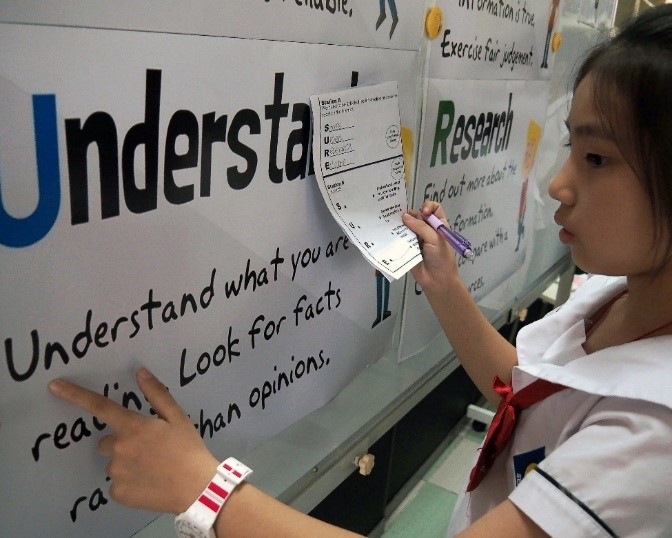
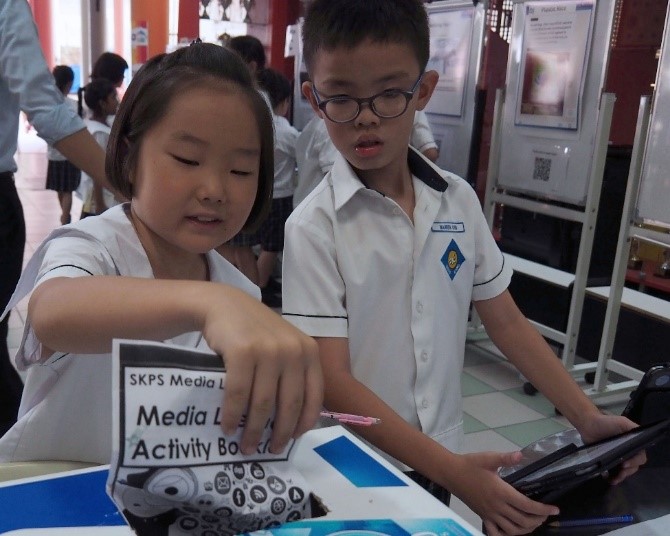
Students participating in the various activities that were organised during the Media Literacy Week
P5 Code For Fun Programme (CFF)
Code for Fun (CFF) seeks to expose our P5 students to learn Computational Thinking through coding. The students will participate in a 10-hour enrichment programme conducted in school. Through this programme, they will develop an appreciation of core computational thinking and coding concepts through simple visual programming-based lessons co-developed by MOE and IMDA. They would also be exposed to emerging technologies such as artificial intelligence.
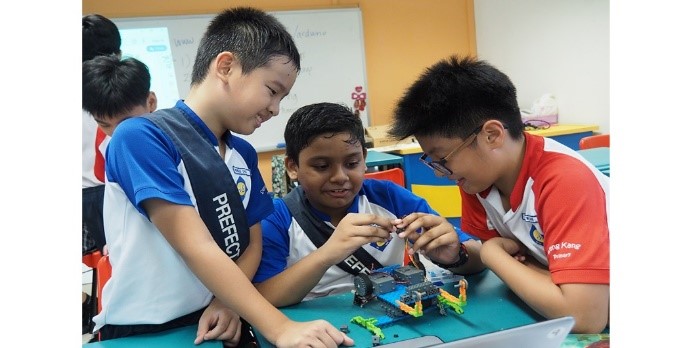
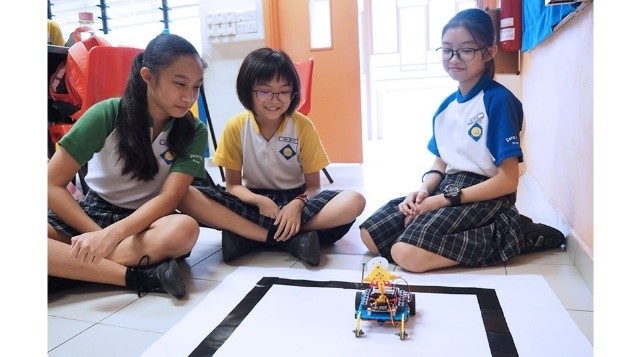
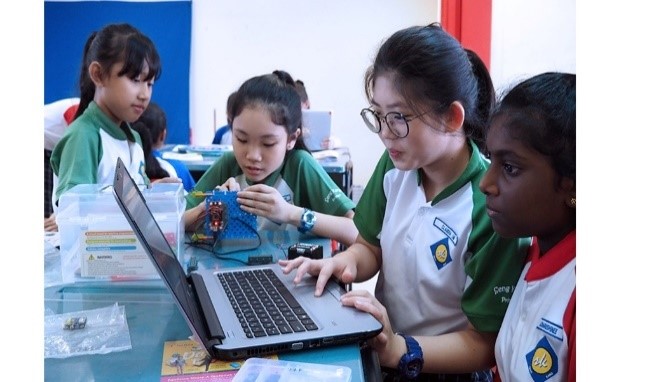
P6 Digital Maker (Micro:bit) Programme
The Digital Maker Programme is a joint initiative by IMDA and its partner Microsoft to nurture a new generation of digital natives with a passion to create with technology. This programme is introduced to Primary 6 pupils and it aims to let equip students with basic skills of digital making using Micro:bit. The training package is customised to raise our students’ interest. The styudents were taught introductory programming and on the capabilities of the Micro:bit, a pocket-sized codable device. Thereafter, the students are given the opportunities to explore how they may want to use it to solve real-world problem using technology like creating a sensor to measure moisture in the soil and using automated devices to water the plant and even creating a traffic light with Micro:bit.


Cyber Wellness
Framework and Principles
The school adopts the MOE Cyber Wellness Framework. The Framework focuses on developing the child’s instinct to protect himself and empower him to take responsibility for his own well-being in cyberspace. Thus, this framework highlights two principles to guide pupils in their actions, describes a 3-step process to explore cyber wellness issues and encourages schools to partner parents in promoting cyber wellness among pupils.
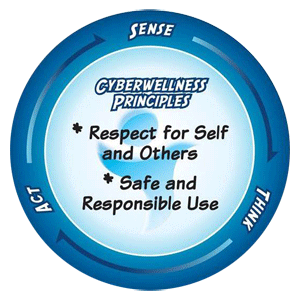
Principles
The two principles, “Respect for Self and Others” and “Safe and Responsible Use” when adhered to will anchor pupils’ well-being in cyberspace as they will then be able to make careful and well-considered decisions.
1. Respect for Self and Others
Pupils need to:
- uphold their own dignity when online (e.g. avoid surfing inappropriate sites and participating in illegal online activities)
- respect others (e.g. avoid using the work of others without permission and publishing undesirable materials that hurt others).
2. Safe and Responsible Use
Pupils need to:
- have an understanding of the risks of harmful and illegal online behaviours, and learn how to protect themselves as well as to avoid dangers they may encounter online.
- be able to evaluate the consequences of their decisions/behaviours while online and make responsible choices to protect themselves and the community (e.g. not spending excessive amount of time chatting or playing games online, and reporting victims of cyberbullying to a trusted adult/authority).
Cyber Wellness Talks are conducted during the assembly and Lifeskills Lessons are integrated into the curriculum to further guide our pupils in protecting themselves in the Cyber World. Our school’s Cyber Wellness Ambassadors also planned and conducted Cyber Wellness Programme on School Learning Day.

